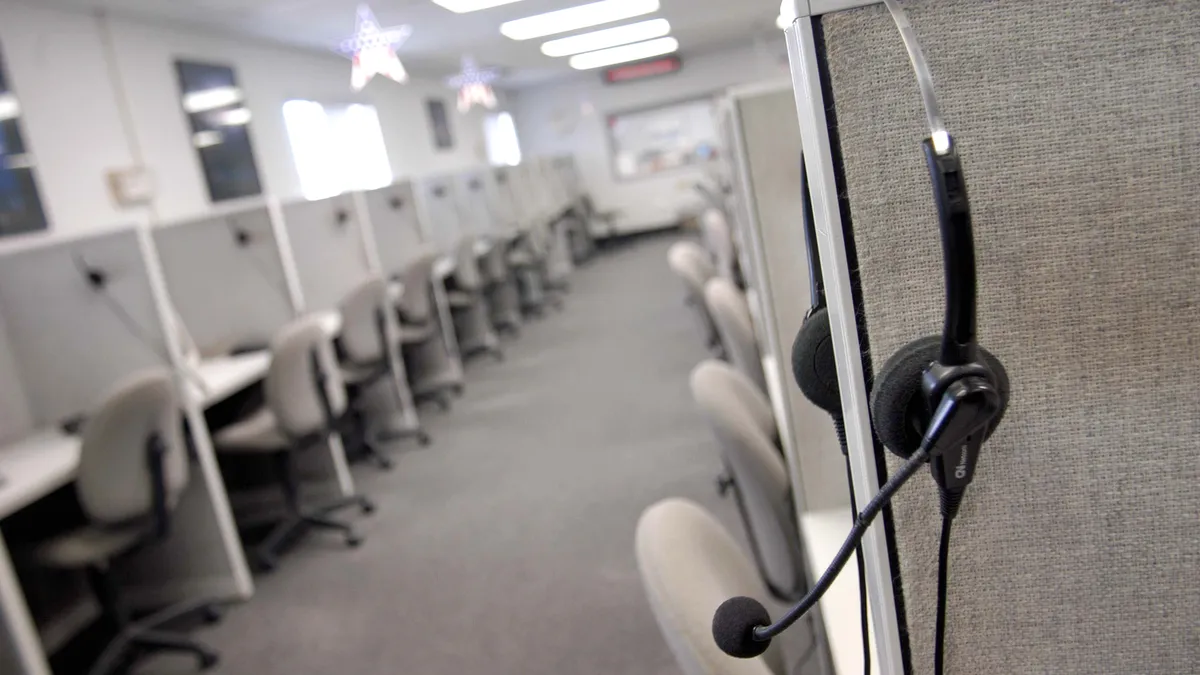SAINT GEORGE, S.C. — A few miles east exiting southbound from Interstate 95, there is a large hole in the ground. Figuratively speaking, the land's owners are about to throw a couple million dollars into it.
Workers in yellow vests drill, hammer and pour the foundations of the object purchased with a $2.5 million investment: the Correa Axia-70, a milling machine that will begin operating in September, according to BID Group. The Canada-based conglomerate has its U.S. headquarters here in the Palmetto State, and just down the road, it operates a sawmill part manufacturing plant that will house the new equipment.
But like many manufacturers this summer, the difficult part is finding the workers who will help the company take advantage of that investment.
"My challenge is, you can have all the turnkey [contracts] signed," said Kathleen Nawrocki, BID Group's U.S. HR manager, "but you don't have the people that are trained to do the job, and the job keeps getting more complicated."
It is not for lack of trying, Nawrocki and others told HR Dive in interviews. The company has placed ads on Indeed, local radio stations and even its Facebook page, said Pier-Luc St-Hilaire, manufacturing operations manager. BID is specifically looking for welders and mechanics, he noted, but it has also hired those with no previous experience and sought out temporary hires. St-Hilaire said the St. George facility currently has about 105 to 115 employees working on the shop floor but that, ideally, he'd like to have up to 150 in the near future.
That is in part because of the demand BID is seeing, which is reflected by the fact that some backlogs for its products extend through the next four years and that some clients have placed down payments without even sending BID a quote, he continued; "We've never seen that."
Add the new machine to the mix, and that has forced BID to emphasize employee training. The company onboarded an online training portal so that workers can view content on how to operate, service and change out different parts of the machine, Nawrocki said. It also has experienced employees take beginners into the field to familiarize themselves with the machines and the sawmills in which they operate.
The hands-on approach appeals to BID's workforce. "They do like their YouTube, they do like to sit in the program, but most of them do not like to be too much in a chair," Nawrocki said. "And as they train and as they learn more, they get paid more."
BID also is competing with some large names for workers, including Volvo, which operates a plant in nearby Ridgeville, as well as Boeing and Bosch, located on the outskirts of coastal hub Charleston. BID's retention situation was "awful when I first came here," Nawrocki said, even though some workers came to the company from its competitors.
Others, she added, seek potential for high pay at contracting firms, where welders can earn up to $50 an hour. "But they find out how stressful that job is, and they also find out it's a contracting job," Nawrocki said, "so when your part is over, they lay you off … they do pay big money but it's not as stable. So we've had people go and come back."
The company has made changes to its benefits package to attract talent, signing on Blue Cross Blue Shield as its current U.S. health insurance provider in 2020. In 2021, it is seeking to offer employees access to telemedicine platform Teledoc as well as access to Mood MD, which describes itself as a "holistic mood improvement program."
"This last year has been hard on everybody, no matter what situation you're in," Nawrocki said. "They're very sensitive to that, sensitive to family members, so they're enhancing that package for this year."
Being an international firm has surfaced some cultural differences between BID's Canadian and U.S. leadership teams, Nawrocki said, and that includes benefits and talent acquisition. Nawrocki added that she has had to educate the Canadian side of the company on the importance of 401(k) plans, leading to changes. In her first year with BID, the company switched its 401(k) to match 4% and allow employees to be vested immediately, rather than first needing to work for three years in order to be vested.
"My biggest challenge is getting Canadians to understand the importance in the U.S. of having a good brand, of having a good benefit package — that it isn't just about the salary, and to explain or to work with them about the culture in South Carolina," Nawrocki continued. "It's not always about who pays the most. There's a lot about family time. It's a lot about being treated with respect. It's a lot about things like four 10-hour workdays and having long weekends. It's been a work in progress."
BID also has made an effort to better market the job environment it offers, including forming partnerships with a marketing group as well as the state government. "Few people know how automated and how cool the job is … until they actually get here and the word gets out about the machinery they get to work," Nawrocki said.
She added that the message to potential workers is not necessarily about high earnings potential, but rather about the chance for advancement and training that can open the door for future opportunities. "If you can be flexible, the job is what you make it," Nawrocki said. "You can move up, you can do jobs that you never thought you could."
"You can say it all you want, but your employees say it best for you."

Kathleen Nawrocki
U.S. HR Manager, BID Group
Officials highlighted a few of those examples. Dustin Miles, a mechanical assembly supervisor, has been with the U.S. division of BID since its 2013 inception. Born in the nearby city of Orangeburg, he had very little experience before coming to BID. "Everything I know about this business was taught to me by the employees here," he told HR Dive.
Miles now has 10 direct reports, and his team has tackled a variety of projects in the facility. He said that is one of the reasons why he has stayed at BID, combined with the ability to carve his own path and the fact that the job keeps him local to his hometown.
"I've always been a tinkerer," Miles said. "I can't be bored." Working on the variety of projects he has encountered during his time at BID has been more than enough to hold his interest, he added.
Employees have also moved from the shop floor to the company's sales operations team. That is the story of Garrett Judy, an inside sales representative at BID and St. George native who started at the company five years ago as a welding technician. After applying for an open position at the U.S. headquarters, the company flew him to Canada for training alongside long-time BID employees in the country.
Judy said his experience working with the company's products and parts gave him the knowledge to succeed in his current role, and he has been able to build a small team in that timeframe. He said his advice to those looking to build their careers at a company like BID is to keep their options open; "You might fall in love with it."
BID is hoping these types of stories can help lure talent in a competitive local market. "You can say it all you want, but your employees say it best for you," Nawrocki said. "We're to the point now where we've had people experience it. And they are really the people that are speaking for us."





















